13 Reasons To Track Your Expenses And Control Your Spending
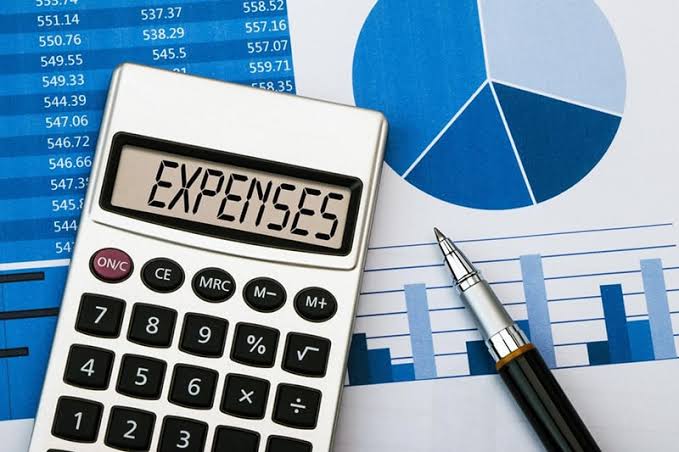
Do you know what happens to your money each month? Unless you keep track of what you spend, likely, you don't. Hence, we have outlined these 13 Undeniable Reasons Why You Should Track Your Expenses and control your spending.
Even if you have a general idea of what you do with your money and know your big monthly bills, it can be hard to get a clear picture of how your money is spent every day until you start keeping track of your expenses and controlling your spending.
The responsibility of taking care of our own money doesn't start when we get a job. It starts much earlier, for some when they go to college and others even earlier.
If you don't learn how to handle your money when you're young, it may be harder to get into good money habits when you get a job or start your own business.
The worst part is that you may be working and earning, but inadequate tracking of your expenses can have you constantly feeling like you don't make enough money. It isn't about you not making enough money; it's about not managing the amount you make to stay financially afloat.
Related: 30 Budget Busters That Will Hinder Your Savings
Why You Should Track your Spending
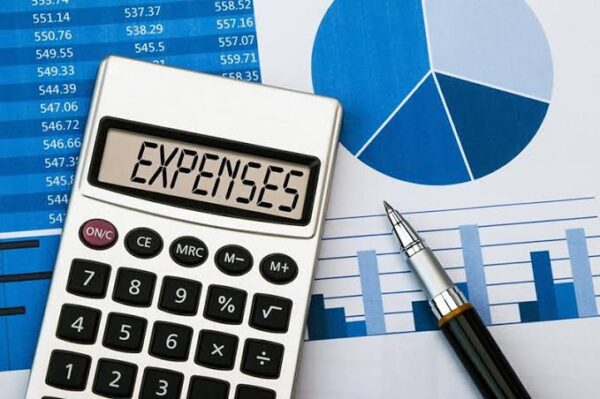
If you are always in debt, you don't pay enough attention to how you spend your money. It's important to keep track of your spending, so you don't have a bad financial situation.
In a month, people buy a lot of different items. It could be something as simple as a pack of gum, a newspaper, an ice cream, or even clothes and other things for the house. When you add up all of your purchases at the end of the month, you may find that you made more than 50 purchases in just one month.
At that rate, spending more than you make is easy if you don't track your spending.
The easiest way to go bankrupt is not to keep track of your spending. This saying says everything you need to know about how important it is to keep track of your spending.
If you're still debating whether or not to keep track of your expenses, consider the following:
- 56% of Americans have less than $1000 in their bank accounts, with a quarter having less than $100.
- Almost one-third of British and 50% of Australian workers are on a fixed income.
- Sixty percent of Americans cannot meet unexpected expenses, but only one-third have created a thorough home budget.
- Unnecessary purchases are blamed for 44% of higher-income Americans living paycheck to paycheck.
These are difficult figures to take, but they are accurate. Of course, many people are just in difficult conditions, making it difficult for them to gain control of their finances.
For the rest, it boils down to poor financial planning. If you're broke by the end of the month, haven't met your financial goals, or are simply unclear where all your money has gone, we have two words for you: track costs.
13 Undeniable Reasons Why You Should Track Your Expenses And Control Your Spending
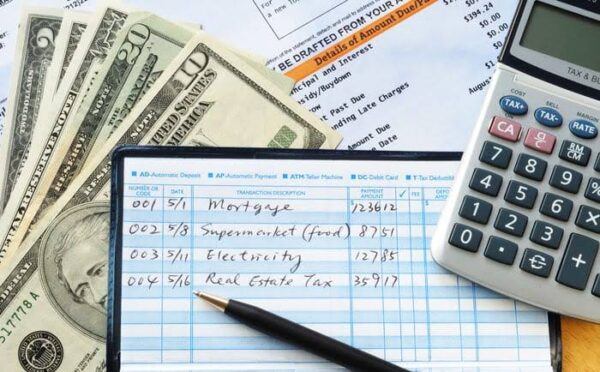
1. Tracking Your Expenses Helps You Meet Your Financial Objectives
One of the Undeniable reasons you should track your expenses is to ensure you meet your monthly financial objectives. Sticking to your budget isn't sufficient if you don't also work toward crucial savings goals.
Whether you want to build an emergency fund, pay off debt, save for retirement, or save for college, a vacation, or other short-term goals, you're more likely to reach these goals if you budget for them, make a savings plan, and then track your spending to make sure your spending reflects your objectives.
Related: Signs You Don’t Make Enough Money? Here’s What to Do
If paying off high-interest debt is your primary concern, you should make that a fixed expense in your budget. Each month, put the amount you planned in your budget toward that debt, and then keep track of your spending to ensure you paid off as much debt as you planned. 4 Once you've paid it off, you can start working on other goals you couldn't reach while in debt, like saving for retirement.
2. Holding Yourself Accountable
What will keep you on track if you want to save money, make investments, get out of debt, or build wealth? We can all have financial goals and dreams, but if you don't keep track of your expenses, there's nothing to hold you accountable for when you make a bad financial decision.
Keeping track of your spending makes you more likely to reach your financial goals in the future. And in the long run, that can make the difference between being broke and being rich.
3. Tracking your Expenses Helps You Stick to Your Budget
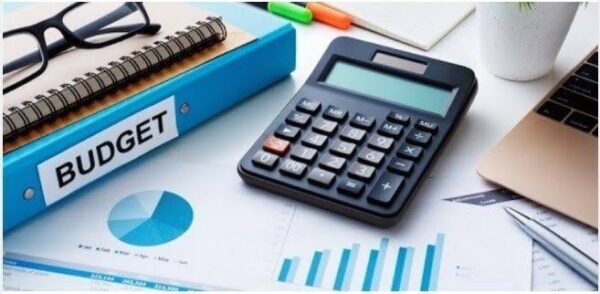
After you make a budget, which is a plan for how much you will spend each month based on your income and expenses, you need to keep track of your spending every day to stay on track. You won't know when to stop spending in a certain category if you don't keep track of your money (food or clothing, for instance).
At the end of every month, look over the expenses you kept track of and compare what you spent to what your budget said you should spend. If you've spent too much, look for ways to save money in a certain area. If you didn't spend enough, you might want to save more money and pay off debt.
In either case, you should use what you learn from keeping track of your expenses and any changes in your life (like getting married or having a baby) to make changes to your budget for the next month that will put you in a better financial position.
For instance, keeping track of your expenses might show that you budgeted too little for food or forgot to budget for one-time costs like holiday gifts. In this case, you can add these one-time costs to your next month's budget and make it more realistic and complete.
Read also, 21 Ways To Make Budgeting Fun
4. Tracking Your Expenses Puts You Back in Control
It's terrible not knowing what happens to your hard-earned money. You may be wondering how, despite your best efforts, you will be unable to purchase even a hamburger until your next paycheck arrives. For some reason, you feel entirely befuddled and useless when managing your own money.
Maybe you were there. And have no desire to return to that place. You must accept responsibility. Everyone will stand back and watch you spend your savings. Friends, family, and corporations all indirectly and actively encourage this.
It is ultimately up to you to make financial decisions. Nobody else can guarantee that you will not retire without a nest egg and wonder what went wrong. Keeping track of your expenditures is the first step in regaining control.
5. Tracking Your Expenses Can Reveal Any Underlying Spending Issues
You should also keep track of your monthly expenses to learn more about how you spend your money. If you don't know where your money is going, you won't be able to spot bad spending habits that you can easily change to make your money work for you.
For instance, if you keep track of your expenses, you might pay monthly for a service you don't use, like a gym membership you don't attend.
In this case, you could cancel the service or switch to a cheaper one. Or, you might realize that going out to eat or buying clothes from expensive brands makes you run out of money before the end of the month.
Related: Budgeting for Unexpected Expenses, Best Ways to Avoid Disaster
Keeping track of your spending can also help you find big problems with handling your money. For example, if you look at your expenses over months or even years, you might notice that your rent goes up every year and now takes up a big chunk of your monthly income or that you aren't making enough to live the way you wanted to.
To fix these issues, you might have to make big changes like moving to a cheaper place to live or getting a second job to make more money. It won't be easy, but if it helps you get your money in order, it will be worth it.
6. Identifies Any Budget Categories to Reevaluate
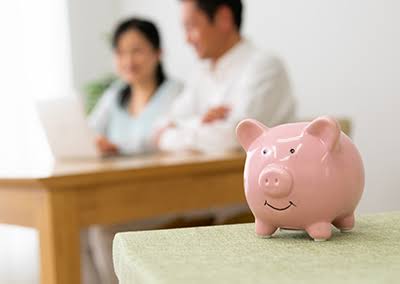
What percentage of your net income do you spend on housing, food, and transportation? How much money do you save each month for a rainy day? What about the money you have free to spend on whatever you like?
Uncovering the answers to these questions is simple if you keep track of your costs. You can figure out where you can cut back or stop spending if you know how much and what you spend it on. Most of the time, you can cut back on a few purchases to save money.
After crunching the statistics, you may conclude that cutting your housing expenditures, driving a less expensive automobile, or creating a food budget will have an immediate and long-term impact.
7. Shows You Your Lousy Spending Habits
What percentage of your monthly salary do housing, food, and transportation take up? What is your monthly rainy-day fund balance? Isn't there something about having unrestricted spending cash that appeals to you?
You'll have no trouble answering these questions if you keep a budget. Keeping track of your expenditure will help you identify areas where you can reduce or cease spending altogether. It's usually cheaper to stop and pick up a few necessities rather than try to go the entire trip without shopping.
A thorough analysis of your finances can lead you to conclude that cutting back on housing expenses, switching to a less expensive vehicle, or establishing a food budget will have an immediate and lasting impact.
8. Helps You Cut Out Impulse Spending

When you track what you spend, you must think before you spend. If you keep track of what you've bought and how much you've spent, you'll be less likely to buy something on a whim. When I go through my receipts and write down my expenses, I don't want to see hundreds of dollars going out the door every month on purchases I didn't think about.
You may spend more on a whim than you think and use money meant for more important things. No one likes to waste money, no matter how much money they have. Keeping track of your purchases will make you realize how much you spend without even realizing it. Over time, you'll spend in ways that don't make you feel bad later.
9. Ensures You Catch Fraudulent Transactions in Time
One morning when I checked my bank account online, I noticed a sizable pending transaction from a Best Buy I didn't recognize. My bank's fraud department didn't discover it until after I did. Since I'm familiar with electronics businesses and have made purchases from Best Buy online, I doubt they ever would have.
I would not have known until it was too late if I hadn't been diligent about checking my daily spending.
Think about the frustration of having your debit card denied at the supermarket or your rent check returned unpaid. You must now pay the late payment cost and the check return fee. Until you restore your banking information and acquire new cards, you won't have access to your money.
Read also, What Are Card-Not-Present (CNP) Transactions?
The worst possible time to discover a breach in your account security is when you start bouncing checks left and right. If for no other reason, you should keep tabs on your spending to avoid fraud. Make today the first day you consistently check your bank account after being away for weeks or months.
10. Gives You a Sense of Accomplishment

One of the Undeniable Reasons you should track your expenses is the sense of accomplishment that comes with it. If you've been having trouble, figuring out where your money goes and planning how to spend it wisely is a big win. It's a big accomplishment that will make you feel better about the future and sleep better at night.
Keeping track of your spending and avoiding financial trouble can help you feel better about your money. Also, you'll better understand how you spend your money.
Most of us only have a vague idea of where our monthly money goes. But look around you: Are your closets full, are your fitness gadgets collecting dust, and are your cosmetics spilling out of your bathroom drawers? These are the results of how you spend your money.
With one-click shopping and automatic billing, it's easier to spend money without thinking about it, whether at work, eating dinner, watching TV, or even sleeping. But if you pay attention to every dollar you spend – it only takes a few minutes a day – you'll see patterns, find waste, and find expenses that don't fit your values and goals. Soon, you'll start to think twice about what you want to buy before you hand over your credit card.
11. Prevent Potential Financial Crises

When you've been keeping track of your expenses for a while, you'll get into a rhythm and know how much you generally spend on different things.
But right now, before you start keeping track of your spending, you don't know if you're spending more or less on food, clothes, and electronics than you have in the past few months. When you keep track of your spending, you'll be able to see where those trouble spots are.
Americans who make at least $75,000 a year and live from paycheck to paycheck can't do anything about their problem spending areas. They spend too much on things for their lifestyle. When you keep track of your expenses, you'll be able to spot trouble spots before they get worse.
See also, What Is A Financial Safety Net? And Why Is It Important?
12. You’ll Feel Less Anxious About Money
Most of us avoid discussing or even thinking about money because it makes us feel bad. According to an American Psychological Association survey, most Americans were anxious about money in the previous month. We are concerned about unpaid debts and items we want to acquire for ourselves or others but cannot since we do not have enough money. We are also concerned about our financial situation in the future.
However, burying your head in the sand is not a viable option. According to Tiller's survey, facing your money anxieties head-on and taking charge of your expenditures is a proven strategy to alleviate worry and stress.
If you're like most Americans and don't keep track of your money, set aside a few minutes each day to begin this powerful new habit. There are numerous tools available that make it simple, quick, and even enjoyable. You can use a pre-made report tool like Mint, YNAB, or Revolut, which allows you to connect your bank accounts to Google Sheets and create your dashboard.
13. Finding Ways To Save Money and Avoid Debt
One of the nicest options for keeping track of your spending is that you are likely to find expenses that are a waste of money that you can eliminate. For instance, we've heard from friends more than once that when they carefully tracked their spending, they found they were paying for online subscriptions they'd forgotten about. This is only one illustration.
You will likely discover other ways to save money in addition to canceling subscriptions you don't use. When you do that, you can put that money into savings instead of spending it. Keeping track of your spending can be a powerful way to keep yourself out of debt.
When you have debt and don't keep track of your day-to-day spending, it's easy for the amount of debt you pay each month to slip through the cracks. But once you keep track of every dollar that goes out of your bank account, you'll start to see how much you're paying in debt, which can be shocking.
Related: 45+ of The Best Apps For Saving Money
How Tracking your Spending Improves Your Relationship

My husband and I spent the first few years of our marriage blissfully unaware of the true state of our finances. We didn't have a large difference in pay, so we shared the bills equally. We figured that since we both had stable jobs and moderate spending habits, we wouldn't require a monthly budget.
When we encountered a few unexpected challenges, we realized our mistake. We finally saw eye-to-eye on our financial situation once we both started keeping tabs on our spending. There was that need to start making joint financial decisions after discussing everything. We planned for the future with immediate and far-off objectives, established a budget, and adopted a more minimalist lifestyle.
We improved our level of coordination and cooperation to unprecedented heights. A happy marriage requires joint financial planning. First, establish a system for recording costs.
Read also, 40+ Fantastic Stay-at-Home Date Ideas
How to Track Your Expenses
1. Write Down Every Expense You’ve Made
The traditional way to keep track of your spending is to write down every cent you spend and why in a notebook or ledger. Tracking your expenses gives you a quick look at where your money goes.
Additionally, it is simpler to do if you do it every day, usually right before bed at the end of the day.
https://paypant.com/13-reasons-to-track-your-expenses-and-control-your-spending/
Comments
Post a Comment